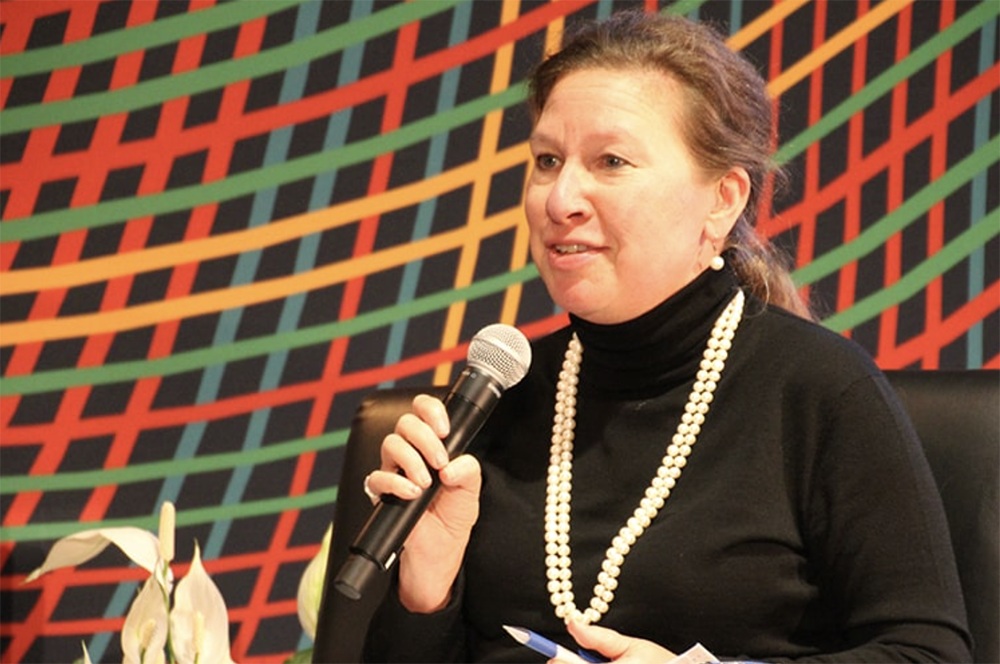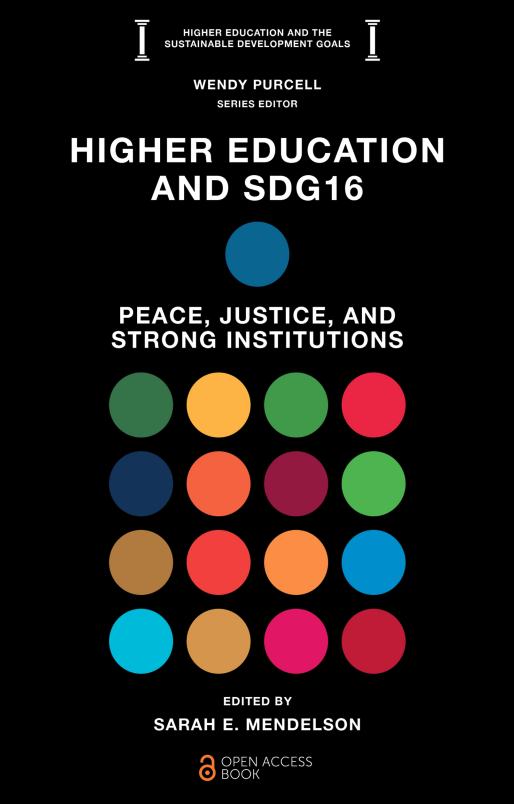CMU Advances a Vision for Sustainable Futures

by Shannon Riffe
Now, five years from 2030, the target year for achieving the Sustainable Development Goals (SDGs), issues related to equity and justice have taken on new urgency. At this pivotal moment, Carnegie Mellon University is focused on creating Sustainable Futures. Directed by Ambassador Sarah E. Mendelson, Distinguished Service Professor of Public Policy, and supported by Dean Keith Webster and Associate Dean Sayeed Choudhury, Sustainable Futures is designed to re-imagine global development and help democracies deliver for all.
Sustainable Futures reflects CMU’s deep commitment to interdisciplinary impact, global responsibility, and practical solutions grounded in data and community engagement. Its mission is to leverage the university’s strengths, particularly in artificial intelligence and data analytics, to close equity gaps and promote sustainable change, guided by the SDG framework.
“This work is about helping democracies deliver for all—and doing so with tools and methods that reveal local needs and elevate local solutions,” said Mendelson, a former US Ambassador to the UN Economic and Social Council and senior official at USAID. “We’re not just talking about climate. We’re building the foundation for a new model of development grounded in justice, equity, and community partnership.”
Research and Publications Drive Global Impact
 A growing body of work is helping to define its direction and impact. In early 2025, the UK based Emerald Publishing released Higher Education and SDG16: Peace, Justice, and Strong Institutions edited by Mendelson and part of a comprehensive 17-volume series examining how higher education supports the SDGs. The peer-reviewed publication has been adopted into coursework at multiple institutions and recognized for its innovative approach to human rights and justice.
A growing body of work is helping to define its direction and impact. In early 2025, the UK based Emerald Publishing released Higher Education and SDG16: Peace, Justice, and Strong Institutions edited by Mendelson and part of a comprehensive 17-volume series examining how higher education supports the SDGs. The peer-reviewed publication has been adopted into coursework at multiple institutions and recognized for its innovative approach to human rights and justice.
Mendelson authored both the introduction, which advocates for a paradigm shift in how human rights is taught and researched, and a chapter examining the impact of COVID relief funds on social justice issues in Pittsburgh and Atlanta. The research, conducted with Heinz School students, revealed that the funds did not achieve the hoped-for “just transition” and highlighted the need for better data collection, especially disaggregated data, to advance the SDG principle to “leave no one behind.”
International Collaboration and Policy Development
Sustainable Futures influence extends to international policy circles. A policy memo titled Rethinking How to Fight Inequalities, Poverty, and Hunger: Paradigm Shifts to Accelerate Action on the SDGs, co-authored by Mendelson, Thomas Probert of the University of Pretoria, and Choudhury for Brazil's 2024 G20 presidency, proposed creating an International Consortium of Centers for Sustainable Futures. The proposed Consortium would unite universities across five countries—the United States, Brazil, South Africa, the United Kingdom, and India—to help localize the SDGs and address persistent inequalities using people-centered, data-informed strategies. Such a Consortium would help create the needed global push to help grow the next generation fluent in the SDGs, able to apply technological innovations to solve humanities’ most pressing problems, and lead in re-imagining development in the 21st century.
Mendelson recently contributed to global human rights discussions through a submission to the UN Office of the High Commissioner for Human Rights (OHCHR). Her essay, "Re-Imagining Development: Integrated Approaches to Human Rights, the SDGs, and AI," responds to the call for input on integrated approaches to human rights promotion and the implementation of the 2030 Agenda.
Community Engagement and Collaboration
Throughout the academic year, Mendelson presented work at leading institutions including the University of Georgia, the University of South Carolina Law School, Northwestern University, New York University, and the University of Toronto. She also organized convenings at the Brookings Institution, where she serves as a non-resident Senior Fellow in the Center for Sustainable Development, and the Sustainable Development Solutions Network USA, which she co-chairs.
The work is enriched by a CMU-led Community of Practice composed of senior rights experts and data scientists who regularly exchange ideas on reframing justice and development approaches in both domestic and international contexts.
Technology and Community-Centered Solutions
Central to Sustainable Futures is its collaborative approach with local communities and global partners. The team is exploring the co-creation of data ecosystems that surface pressing social justice needs and inform responsive, equitable policies. This work includes experimenting with how AI can be responsibly deployed to close long-standing data gaps, particularly those related to race, gender, income, and geography.
"This moment calls for a total reimagining of what development looks like," said Mendelson. "We believe Carnegie Mellon has a unique role to play, not just as a university, but as a platform for generating practical solutions that empower communities, restoring trust that democracy can deliver for all, and revealing how human rights, especially socioeconomic rights, are deeply relevant today."
Sustainable Futures aligns with CMU's strategic priorities and reflects the university's commitment to global engagement and interdisciplinary impact. As the 2030 SDG deadline approaches, the efforts underscore CMU's belief that meaningful progress begins with bold ideas and the dedication to implement them in real-world contexts.
